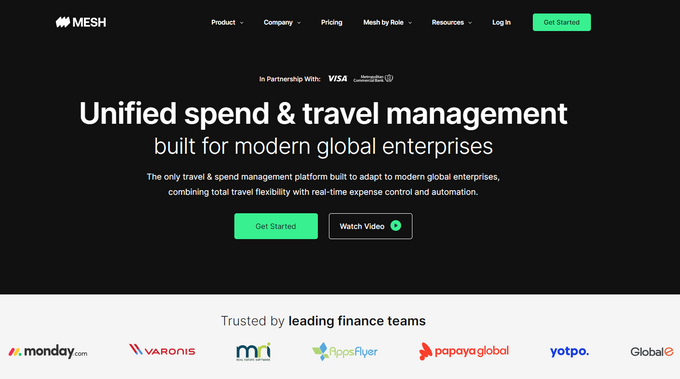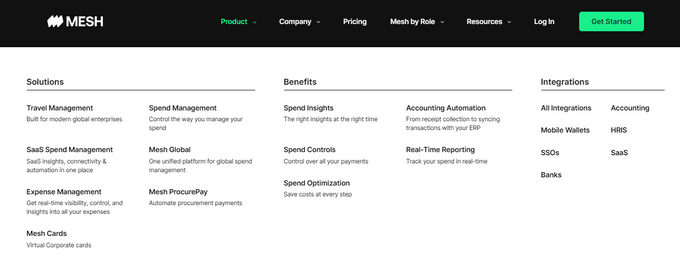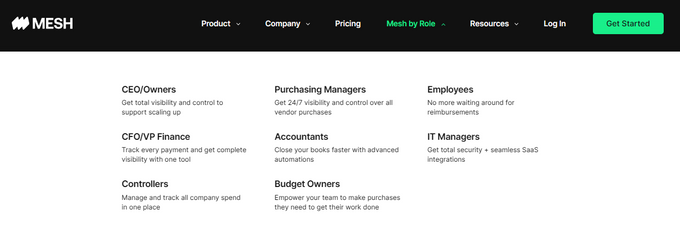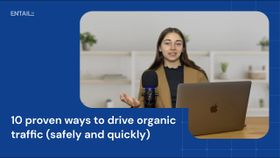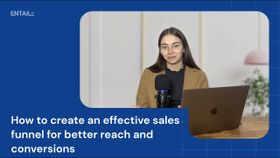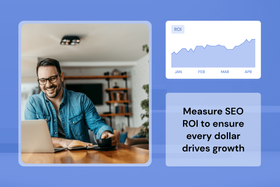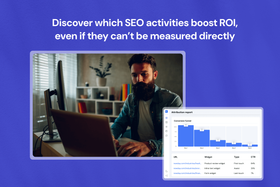Advanced B2B fintech marketing strategies (with examples)
Marketing to a highly educated target audience can be difficult. This guide will help you overcome these challenges by building a trustworthy brand and reaching your customers through the most effective channels.
Updated May 16, 2025
AI Summary
B2B fintech marketing can be a lot more challenging than B2C marketing and even other B2B industries. This is because the target audience usually consists of highly educated finance professionals like certified public accountants (CPAs) and chief financial officers (CFOs) with very specific needs who are often reluctant to adopt new processes.
However, these challenges can be turned into advantages if analyzed and leveraged effectively across different marketing channels. While B2B fintech marketing is one of the most difficult to master, understanding and properly catering to the unique needs of your audience is the key to success.
Key takeaways
- B2B fintech marketing is extremely challenging as it targets a highly educated audience.
- You need to build an authoritative and trustworthy brand.
- Content marketing is a fundamental part of your fintech marketing strategy.
- To create effective content, it must be developed by real experts who can provide genuine value.
Core principles of B2B fintech marketing
When it comes to B2B fintech marketing, there are two main principles to keep in mind:
- Build a brand: A solid brand establishes trust, credibility, and authority, which is necessary for your audience to even consider purchasing your product.
- Invest in content: Content marketing has to be at the forefront of your marketing strategy and how you build your brand. Content is the basis of every marketing activity, so it has to be high-quality, authoritative, and trustworthy.
You can look at a company like Mesh Payments as an example. They built an amazing, very trustworthy brand while selling high-ticket B2B products.
» Find experts to create high-quality, trustworthy B2B fintech content with Entail's expert marketplace.
Best B2B fintech marketing strategies
A good B2B fintech marketing strategy is built on three main pillars:
- Using content marketing to support your brand across different channels
- Establishing a strong brand
- Breaking down your value proposition for paid marketing
Let's go over a few B2B fintech marketing strategies based on these pillars.
Content marketing
Content marketing is crucial for establishing authority and trust. Use these content marketing strategies to increase brand awareness and get more customers.
Collaborate with experts
When it comes to B2B fintech marketing, you need to create expert content that shares valuable expertise, real-world experience, and best practices to help financial professionals solve their challenges.
The quality of your content has to be at the level of investigative journalism—providing massive value by solving real problems and answering your audience's biggest questions. To achieve that, create content with experts who are at the same level as your target audience. For example, if you're targeting CPAs, you need CPAs to develop your content.
Another principle I'd emphasize is the importance of finding marketers with finance backgrounds or knowledge. This is easier said than done because your classic marketer is typically quite different from a finance professional. However, if you can find that powerful combo of a marketing manager who understands finance, that would be the best recipe.
Create content you can distribute across all channels
The goal should be developing high-authority, in-depth content that can be leveraged across all your channels—organic search, paid, email, you name it. This includes resources on your website, social media (text and video content), and email marketing.
People often need education when buying B2B fintech products. Promoting your product isn't enough; you also need to promote your content. This could be articles, webinars, or downloadable guides that educate your leads on relevant topics and convert them into customers.
» Leverage a content management system that streamlines multi-channel expert content creation.
Primary channels to use
Every brand is built differently, but in general, the channels that work best are paid, branding, and SEO.
Paid
Paid advertising is usually the top channel for successful companies because it allows for highly specific targeting. You can use paid channels to target audiences and promote your content based on your unique value propositions (UVPs), users’ brand interests, or competitor searches. You can do this on platforms like Google (for relevant search terms), LinkedIn (based on interests and personas), and Meta (based on interests).
» Discover whether SEO or PPC is a better investment.
To use paid channels, start by breaking down your main UVP. For example, if you're a company like Mesh that offers corporate travel and expense management, you could advertise using keywords like "corporate travel management" or “corporate expense management.”
You can make this even more granular by taking your individual service offerings and targeting those in your paid channels. By clearly dividing your UVPs into smaller features or solutions, you can begin targeting specific user intents and offer the most relevant solution to their challenges.
Mesh has created pages on their website for each of their UVPs. This helps them target the exact intent of people searching for those solutions.
The other aspect of paid advertising is targeting specific personas. Mesh has also created pages that speaks to each of their targeted personas. This approach helps to attract users with the relevant intent and specific role you’re targeting.
A final aspect is using paid channels to promote content that leads people into your sales funnel. Since you're selling to executives and information plays a crucial role in the consideration process, you want to nurture leads with content using paid channels to get people to download guides, read articles, join webinars, etc.
» Book a call with an SEO expert to discuss how paid advertising can complement your SEO efforts.
Branding
Brand is a crucial channel for B2B fintech marketing due to the importance of trust in this industry. Your brand needs to be very trustworthy, professional, and well-known, as your target audience is sensitive and high-profile. Branding should be a cornerstone of your entire marketing strategy.
» Build your brand with Entail's brand marketing software.
SEO
If you're creating a lot of content, the best way to leverage it is through SEO. All the content you create should be in the form of articles on your website to attract people searching for information relevant to your brand. This is where you showcase your expertise and position your brand as an industry leader through thought leadership content on evergreen topics. You want to be present whenever someone is searching for a topic related to your brand.
Later, you can repurpose that content and promote it through other channels. However, SEO is where you want that content to live—on your company blog in the resources section. This is very important for building a trustworthy brand and generating leads.
Podcasts
You can leverage the content you create across multiple channels, including podcasts. Podcasts can be a valuable channel for B2B fintech marketing, allowing you to share in-depth insights and build credibility. For example, Mesh uses their podcast for finance leaders as part of their marketing strategy.
Film your interviews and discussions with the experts you work with, and use that video or audio content for podcasts. Share these expert podcasts on social media and repurpose them into written formats for SEO purposes.
» Check out our organic marketing podcast for another opportunity to see this strategy in action.
Webinars
Webinars are another form of high-quality content that should be part of your strategy. Webinars can be particularly valuable for B2B fintech marketing because they serve to educate your target audience, nurture leads, and get conversions.
You can promote webinars across different channels, and repurpose the content into videos for social media, articles for SEO, and other content promoted through paid channels. To see an example of this, you can take a look at how Mesh uses webinars as part of their marketing strategy.
» Book a consultation call to find out how to add webinars to your B2B fintech marketing strategy.
Events and conferences
When selling to executives, you want to establish real-world relationships in person to reinforce credibility, increase brand awareness, and generate new leads. Conferences and events are the best places to meet your target audience and build trust in person. In these situations, you need a good understanding of your brand and strong content to start meaningful conversations with potential customers.
If you're looking to attend a fintech event in 2026, you can register through Fintech Events.
Partnerships
Developing partnerships with other B2B fintech companies can also significantly impact your lead generation and sales. In a mutually beneficial partnership with a relevant company, both parties can boost brand visibility and access new customers.
Find partners that share your business goals and values and reach out to them to discuss how the collaboration could work. It’s important to communicate clearly, discuss each party's responsibilities, and draft a detailed agreement that outlines each party's role.
» Talk to an expert about leveraging partnerships in your marketing strategy.
Referrals
For VC-backed B2B fintech companies, referrals from your VC to other portfolio companies can have a very high conversion rate. Leveraging referrals through your investors and satisfied customers can yield promising results, as your target audience often knows other professionals in similar roles.
Inviting them as guests on your podcast can help build your brand while facilitating introductions to potential prospects. Referrals can be a powerful strategy, so be sure to nurture your network and provide exceptional service to encourage positive recommendations.
Expert content, expert marketing
Successful B2B fintech marketing requires a strategic, multi-channel approach centered around building trust and authority through high-quality expert content. You can effectively reach and nurture your target audience of finance professionals by leveraging these B2B fintech marketing strategies. Remember that every marketing effort must be guided by the foundational principles of building trust and authority, demonstrating expertise, and providing value.
» Learn how to generate leads as a B2B.
